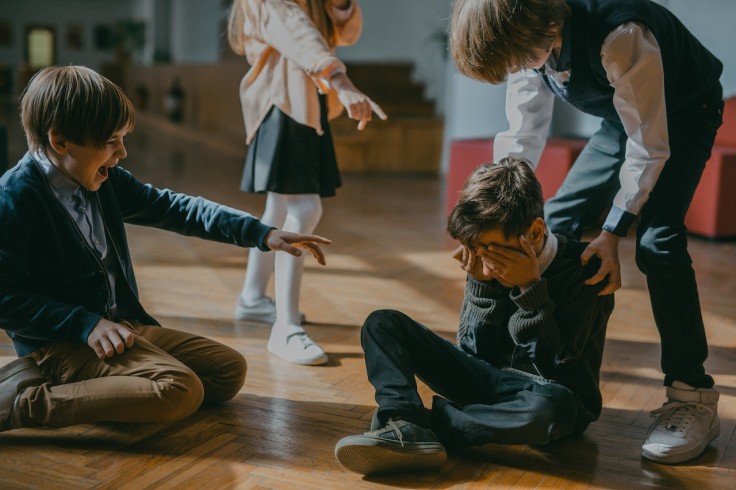
Most parents worry about bullying and their child getting bullied. However, what do parents do when it is the other way around? What if their child is the bully?
Moms and dads with children victimized by bullies can turn to a lot of available resources to assist them in navigating their children. Unfortunately, parents with children who are the bullies are in a contrasting situation as they do not know who or where to turn to seek understanding and guidance.
Melinda Wenner Moyer, a science and parenting journalist, contributor at Scientific American magazine and The New York Times, and author of How to Raise Kids Who Aren't Assholes, stated that the reason for this is that moms and dads have "blinders on" when it comes to their own children. They can be "in denial" that their sweet, little kids have malicious behaviors or have tendencies that can lead to bullying behavior.
Thus, this means that there are many parents that do not know what to do when they observe or witness concerning behaviors from their children. In fact, most are often caught off-guard when they are told that their kids were the "aggressors" in an incident that hurt another child's feelings.
What is bullying and what is not
Kristen C. Eccleston, a consultant from Weinfeld Education Group, emphasized that it is important for parents to "approach the issue head-on" and not be dismissive or defensive about it. With this, they can focus on how they can assist and support their kids to work through whatever is bothering them.
However, experts are reminding parents and caregivers that not all interactions between kids that end up awry is a case for bullying.
Adolescent and child psychiatrist Dr. Larry Mitnaul described bullying as "unwanted, aggressive behavior, typically among school-aged children. Typically, there is a perceived power imbalance and the aggressive behaviors tend to be repeated over time."
Harm could mean hurt feelings, as simple as that. Power imbalance, on the other hand, could consist of anything from a noticeable difference in size, weight or social status.
Moyer added that if the kid is mean to another once or is just normally having a problem with a friend, it may not be bullying but "just life" happening.
She cautioned parents to "not jump in" every moment that their kids have a problem with their friend. While bullying does need to be addressed, parents should be careful as they may prevent their children from developing social skills that they will eventually need to handle different social situations as they grow up and in their lives.
Read Also: Bullying: A Menace That Haunts The Mind Of Every Child And Parent
Punishment is learning
If parents have noticed that their children are engaged in bullying, Moyer encouraged parents to start a conversation with the kids and "go in with curiosity." Start by asking the child to narrate and recount what happened, and from there, ask a lot of follow-up questions.
Bark Technologies's chief parenting officer and author of Parenting in a Tech World, Titania Jordan, warned parents that these types of conversations will not be easy, but are very crucial."
Moyer added that it is significant for children to have a say about what happens in a safe environment where they will not feel judged or shamed. If these kids will feel those negative emotions, there is a high chance that they will rather shut up and "shut down." They will also not be in a good frame of mind to listen.
Moyer recommended that parents should use the incident as an opportunity to "bridge the gap in perspective taking" through encouraging the kids to see and understand how their words or actions could be hurtful to others, whether intentional or not.
Most of the time, children still are not mature enough to know whether or not they acted inappropriately. The parents, who know their children well enough, can tell whether their children understand if their behavior and actions were hurtful.
According to Yahoo News, if talking does not get through, and the kids continue to engage in bullying behavior, consequences may be warranted.
Moyer emphasized that punishment is all about learning. But what kind of punishment? This will be different depending on the parents' approach.
An appropriate punishment will be that which is related to the bullying behavior. If the kid said something mean on repeat during a soccer game, the kid might be forced to sit out or not go to the next game. If the bullying happened online, discipline may involve less or temporarily, no access to social media sites.
Moyer suggested though that sometimes the most effective punishment would be writing an apology letter or doing something kind for the child that was bullied.
Related Article: International Bullying Prevention Association Works To Get To The Bottom Of Bullying